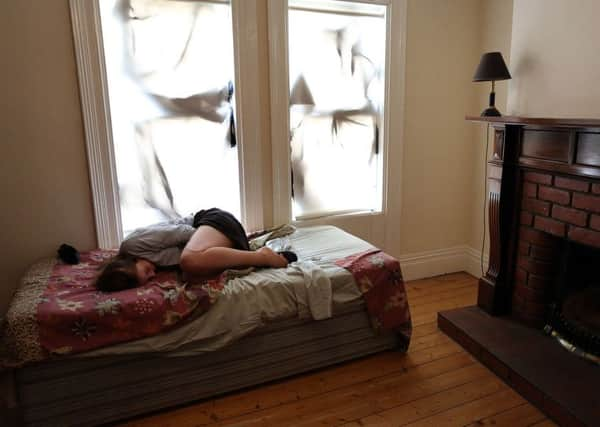Kenny MacAskill: We have a duty to make sure no-one is enslaved anywhere, least of all here


Human trafficking is modern slavery, even if it might not be as brazen as slave ships landing in Africa to take shackled souls to new lands. Some do come by ship, but more by plane or train, often just as with ordinary travellers. They may not be chained together or branded, but they are exploited and invariably threatened. Nor do they almost invariably come from Africa, instead from all parts of the globe. The level of treatment may vary, from callous indifference to appalling degradation and from serious threats to severe violence, but all forms are equally vile and repulsive, as it was all those years ago.
The Scottish Government is right to raise the issue and highlight the problem. Over recent years new laws have been enacted providing a more robust framework to deal with what is an international trade. It doesn’t just arrive in Scotland, because Scots gangs have been involved in operating trafficking in Ireland. But it flows in and out and around the globe, hence why close co-operation is required not just with law enforcement in Ireland and the rest of the UK, but with Europol and Interpol. The inception of Police Scotland has allowed for a dedicated unit to be established to focus not just on the perpetrators but the victims. Moreover, additional support has been provided to those who work with those often vulnerable and invariably frightened individuals.
Advertisement
Hide AdAdvertisement
Hide AdWhat’s needed now is awareness and action not just by the authorities or charities but by us all, because it is happening all around. Crime is frequently seen as something that blights urban deprived areas, not more affluent parts or rural idylls. Yet this vile trade is more likely to be happening just there, where employment and opportunity abound, than in the areas normally associated with offending. The maps showing the extent of the problem in Scotland will have amazed many, as those areas highlighted are not normally associated with criminality and its residents are law-abiding.
It is a deeply complex matter and it’s understandable that people might not even have been aware of the possibility of trafficking existing in their midst. The image often portrayed is of prostitution or labour gangs. Of course these are factors, but it’s far wider than that and much more insidious. Many being trafficked are aware of it going on though some are duped and believe that a job awaits. They’re not manacled but are tethered in other ways. Sometimes it’s the threat of violence to them or to their families back home, other times it can be the money due to them or owed by them, never mind the passport removed from them or the visa never obtained by them.
A few years back I met victims who had been freed from small towns in the north of Scotland and heard of others being abused in a lovely town in our south west corner. They weren’t in prostitution or slave labour, but fishing and agriculture, and to all intents and purposes would have looked as if they were going about their daily business. It’s no wonder the local community were appalled upon hearing of it.
Those involved in the trade are skilled and adept at keeping below the radar, not just of law enforcement but of prying eyes. That’s why much of the exploitation happens if not secretly, then certainly discreetly. The problem is compounded by the victims’ fear both of those that are enslaving them and those who might liberate them. Many come from societies where police and law enforcement are not the benign services that we have in Scotland. There’s a fear of authority ingrained from the world from which they come. Those fears are played on by those holding them, to reduce the risks of seeking to flee and get help.
All of that is compounded by a sense of hopelessness and alienation that abounds when away from home in a strange land and where access to the outside world is restricted. I recall being told a story by the Police Service of Northern Ireland which could be funny if it wasn’t tragic. They’d freed some Vietnamese being exploited by a gang in a rural town in County Antrim. When an interpreter arrived, they were asked if they knew where they were. They insisted they were in London. Despite the best efforts of the PSNI they wouldn’t believe that they were in a small town just outside Belfast, not the great metropolis.
That’s why raising awareness is so vital. There are signs to look for and they need to be advised not just to public officials but to all of us. Progress has been made within both the public and private sector. I recall a summit being held a few years back for that very purpose. Health workers need to be able to identify tell-tale signs of abuse among people they treat, as much as registrars need to keep an eye out for fictitious marriages. When the couple obviously don’t appear to know each other, something’s clearly amiss!
The private sector has equal obligations and those who attended went away understanding the issue and their requirements. Business has to look out for tell-tale signs in workers and suppliers.
More needs done and by all of us, not just law enforcement, or public authority and private business. We are our brother and sister’s keeper and we have an obligation to ensure that no-one is kept in bondage anywhere; and certainly not in our land.